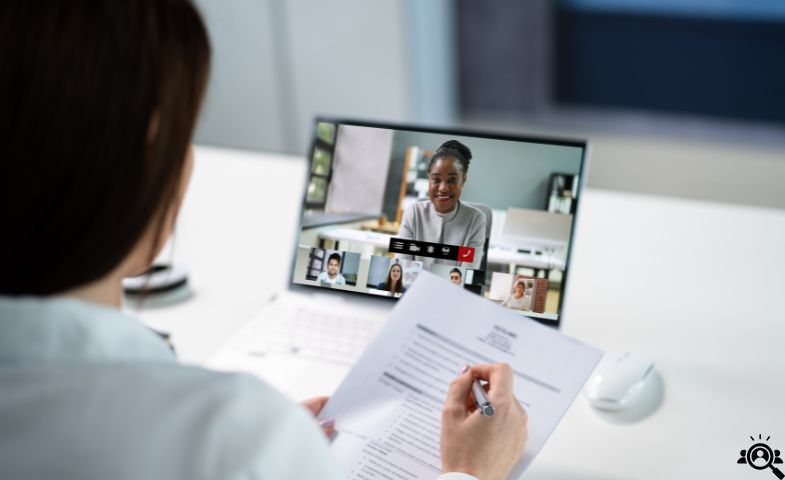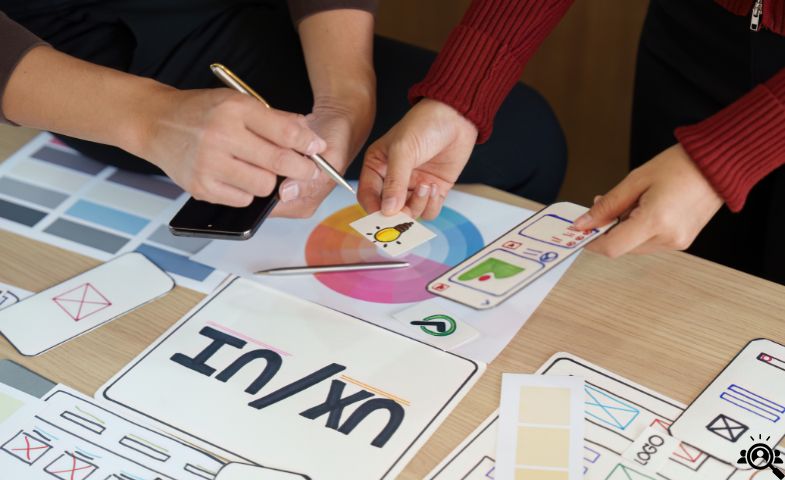No Recurring Fees – Pay Once, and Get the Talent You Need
Phone Screen vs Interview – Key Differences Every Job Seeker Should Know in 2025

21 Best MarketerHire Alternatives to Hire Marketing Talent in 2025
August 28, 2025
21 Best Hackerrank Alternatives for Smarter Tech Hiring in 2025
September 1, 2025Recruitment has become increasingly structured, and understanding the stages of the hiring process is crucial for candidates. One of the most common areas of confusion is the distinction between a phone screen vs interview.
While both are integral parts of the hiring funnel, they serve different purposes, assess different aspects of a candidate, and are conducted at different stages.
In this blog, we’ll explore the difference between phone screen and interview, outline what candidates should expect, highlight common questions asked, and compare the pros and cons of a phone screen vs interview.
This guide will help both job seekers and hiring managers navigate the recruitment process with clarity.
What Is a Phone Screen?
A phone screen is usually the initial step in the hiring process. It allows recruiters or HR professionals to quickly assess whether a candidate’s background, skills, and communication style align with the basic requirements of the job.
-
Purpose: To filter out candidates before scheduling in-depth interviews.
-
Format: Conducted over a phone call (sometimes mistaken as a phone interview).
-
Length: Typically lasts 15–30 minutes.
Many job seekers wonder, “is a phone screen an interview?” Technically, yes—it is a form of interview, but its function is to pre-qualify candidates before moving forward.
What Is an Interview?
An interview—whether conducted in person, virtually, or through a phone interview—is a deeper assessment of the candidate’s skills, experiences, problem-solving ability, and cultural fit within the company.
-
Purpose: To evaluate in detail if the candidate is the right hire.
-
Format: Can be face-to-face, via video conferencing, or in some cases, through extended phone conversations.
-
Length: Ranges from 30 minutes to several rounds spanning multiple hours.
This stage focuses more on behavioral, situational, and technical questions compared to the surface-level screening questions in a phone screen.
Phone Screen vs Interview – The Core Differences
Let’s break down the phone screening vs interview distinction across several dimensions.
1. Stage in the Hiring Process
-
Phone Screen: Early stage, often conducted by HR.
-
Interview: Mid to later stage, conducted by hiring managers, team leads, or executives.
2. Type of Questions
-
Phone Screen Questions vs Interview Questions:
-
Phone screen questions focus on work history, availability, salary expectations, and basic role fit.
-
Interview questions probe technical knowledge, decision-making, problem-solving, and cultural fit.
-
3. Depth of Assessment
-
Phone screens are broad filters.
-
Interviews are in-depth evaluations.
4. Format & Medium
-
Phone screens: Generally phone calls. Candidates sometimes ask, “is a phone screen a video call?” The answer is no—phone screens are almost always audio-only.
-
Interviews: Can be in-person, video interviews, or extended phone interviews.
5. Duration
-
Phone screens: 15–30 minutes.
-
Interviews: 30 minutes to several hours.
Phone Screen vs Phone Interview
Another common point of confusion is the term phone screen vs phone interview. While the terms are sometimes used interchangeably, they differ in purpose:
-
Phone Screen: High-level evaluation, often managed by HR or recruiters.
-
Phone Interview: A longer, detailed discussion, often managed by the hiring manager, covering technical and behavioral aspects.
Understanding this distinction ensures candidates prepare appropriately.
What to Expect in a Phone Screen Interview
Candidates often ask, “what to expect in a phone screen interview?” Here’s a breakdown:
-
Introduction & Role Explanation: Recruiter introduces the company and position.
-
Background Discussion: Candidate summarizes education, work history, and skills.
-
Basic Fit Questions: Salary expectations, availability, career goals.
-
Soft Skill Assessment: Communication clarity, professionalism, and enthusiasm.
This step is not designed to test technical expertise—it’s about ensuring alignment between candidate and role basics.
Phone Screen vs Video Interview
With remote work becoming common, candidates frequently ask about phone screen vs video interview.
-
Phone Screen: Audio-only, short, and preliminary.
-
Video Interview: Conducted through platforms like Zoom or Teams, typically more formal and detailed.
-
Key Difference: Video interviews often replicate the experience of in-person interviews, including non-verbal cues and a deeper level of interaction.
Phone Screen or Interview – Which Is More Important?
Both stages carry weight. A phone screen is important because it’s the gateway to the interview stage. Without passing it, a candidate cannot proceed further. However, the interview is where final hiring decisions are usually made.
Recruiters see the phone screening or interview steps as complementary rather than competing. Each serves a unique role in filtering and evaluating talent.
Phone Screen vs Interview – Pros and Cons
Let’s evaluate the phone screen vs interview pros and cons for candidates:
Phone Screen Pros
-
Quick and less stressful.
-
Convenient—can be done anywhere.
-
Early chance to clarify expectations.
Phone Screen Cons
-
Limited time to showcase skills.
-
No visual cues—harder to build rapport.
-
Often only a pass/fail filter.
Interview Pros
-
Deeper opportunity to demonstrate expertise.
-
Builds stronger connections with the hiring team.
-
More chances to ask in-depth questions about the role.
Interview Cons
-
Time-consuming.
-
More pressure and preparation needed.
-
May involve multiple rounds.
Tips to Prepare for Both Phone Screen and Interview
-
Research the company beforehand.
-
Prepare concise yet impactful answers to common questions.
-
For a phone screen, focus on clarity and enthusiasm.
-
For an interview, prepare detailed examples, highlight achievements, and ask insightful questions.
-
Treat both stages as equally important—you can’t reach the latter without clearing the former.
What to Expect in Phone Screen Interview – Final Thoughts
The hiring process often confuses candidates, especially when it comes to understanding the difference between a phone screen vs interview. In short:
-
A phone screen is a brief, preliminary check.
-
An interview is an in-depth evaluation.
By knowing what to expect, preparing for phone screen questions vs interview questions, and understanding the pros and cons, candidates can confidently navigate both stages.
FAQs
1. Is a phone screen an interview?
Yes, it’s considered a form of interview, but primarily a preliminary step to filter candidates.
2. Is a phone screen a video call?
No, a phone screen is typically audio-only. A video interview is more detailed and visual.
3. What is the difference between phone screen and interview?
Phone screens are short, high-level assessments, while interviews are longer and more detailed evaluations.
4. Phone screen vs phone interview—are they the same?
Not exactly. A phone screen is basic, while a phone interview is a longer, more comprehensive discussion.
5. What to expect in a phone screen interview?
Expect general questions about background, skills, availability, and fit for the role.
Relevant Guides & Services




